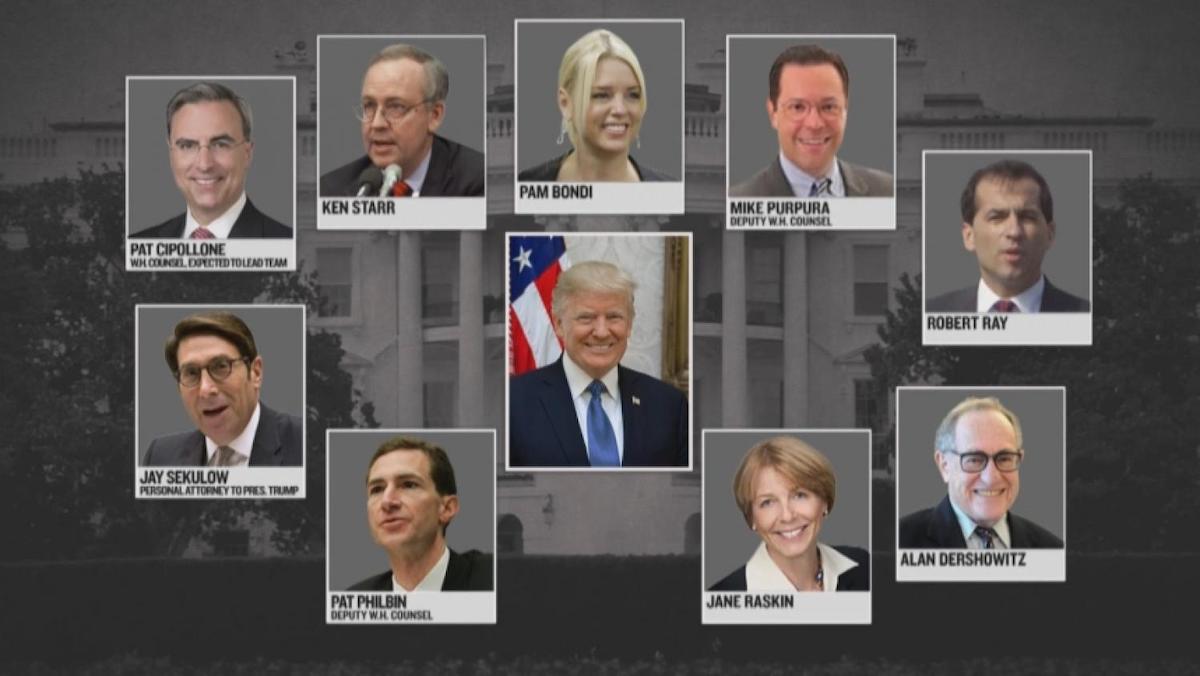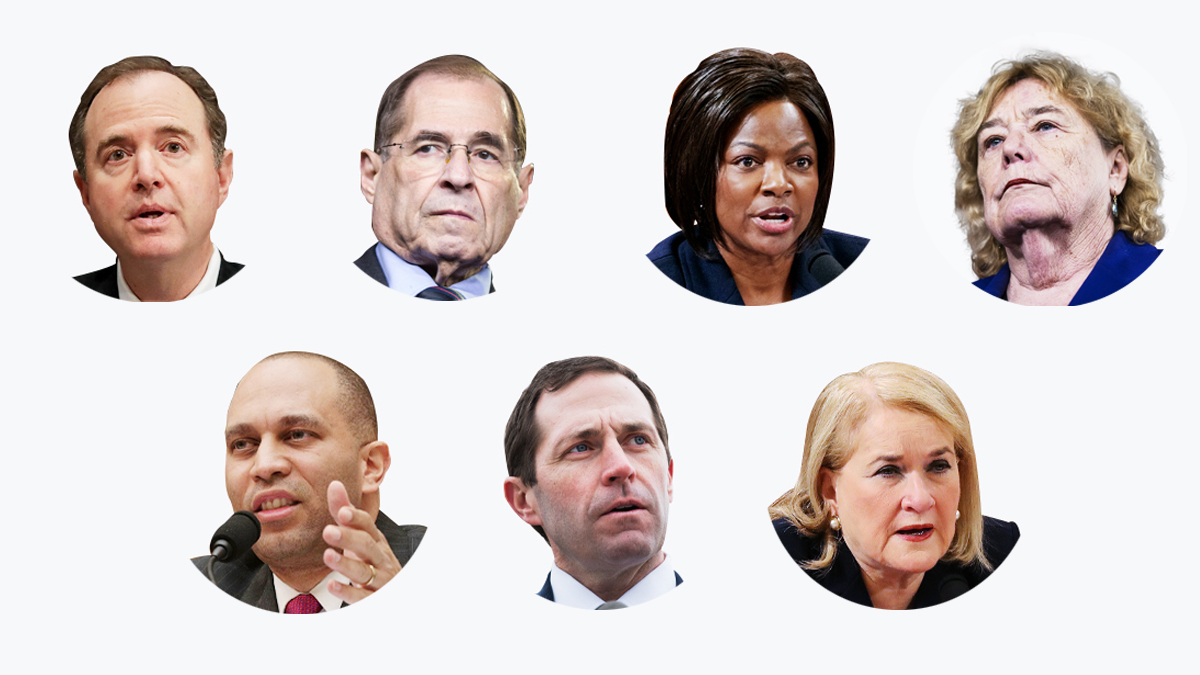President Donald Trump’s impeachment trial is set to unfold at the Capitol, a contentious proceeding to render judgment on his Ukraine actions as Americans form their own verdict at the start of an election year.
As the Senate reconvenes with Chief Justice John Roberts presiding over the rare impeachment court, senators sworn to "impartial justice," the legacy of Trump's presidency and the system of checks and balances are at stake before a politically divided nation.
A first test will come midday when the session gavels open to vote on Senate Majority Leader Mitch McConnell's proposed rules for debate.
On the eve of the trial, the Republican leader offered a compressed calendar for opening statements, just two days for each side, as Trump's lawyers argued for swift rejection of the "flimsy" charges against the president and acquittal.
"All of this is a dangerous perversion of the Constitution that the Senate should swiftly and roundly condemn," the president's lawyers wrote in their first full filing Monday. "The articles should be rejected and the president should immediately be acquitted."
Democrats — as the House prosecutors practiced opening arguments well into the night on the Senate floor — vowed to object to a speedy trial as they pressed for fresh witnesses and documents.
Senate Democratic leader Chuck Schumer warned of a "cover-up" with McConnell's plan that could lead to back-to-back 12-hour days.
"It’s clear Sen. McConnell is hell-bent on making it much more difficult to get witnesses and documents and intent on rushing the trial through," Schumer said. He called the proposed rules a "national disgrace."
The first several days of the trial are now almost certain to be tangled in procedural motions playing out on the Senate floor or, more likely, behind closed doors, since senators must refrain from speaking during the trial proceedings.
Senators are poised for only the third presidential impeachment trial in U.S. history, coming just weeks before the first primaries of the 2020 election, with four senators running for the Democratic nomination sidelined from campaigning.
Sen. Bernie Sanders, the Vermont independent, told supporters in Des Moines they're going to have to "carry the ball" for him while he takes his seat in Washington. The Iowa caucuses are in less than two weeks.
At the White House, with the president embarked on a trip to the global leaders conference in Davos, Switzerland, officials welcomed the Republican trial proposal.
"We are gratified that the draft resolution protects the President’s rights to a fair trial, and look forward to presenting a vigorous defense on the facts and the process as quickly as possible, and seeking an acquittal as swiftly as possible," said White House legislative affairs director Eric Ueland.
House Speaker Nancy Pelosi will also be away for the proceedings, leading a bipartisan congressional delegation to Poland and Israel to commemorate the 75 years since the liberation of Auschwitz at the end of World War II.
House Democrats impeached the president last month on two charges: abuse of power by withholding U.S. military aid to Ukraine as he pressed the country to investigate Democratic rival Joe Biden, and obstruction of Congress by refusing to cooperate with their investigation.
The Constitution gives the House the sole power to impeach a president and the Senate the final verdict by convening as the impeachment court for a trial.
The president late Monday named eight House Republicans, some of his fiercest defenders, to a special team tasked with rallying support beyond the Senate chamber in the court of public opinion.
McConnell is angling for a quick trial and acquittal, and with Republicans holding the Senate majority, the trial proposal is likely to be approved by senators in the president's party. The Republican leader had promised to set rules similar to the last trial, of President Bill Clinton in 1999, but his resolution diverged in key ways, which may leave some senators from both parties uneasy.
After the four days of opening arguments, senators will be allowed up to 16 hours for questions to the prosecution and defense, followed by four hours of debate. Only then will there be votes on whether or not to call other witnesses.
At the end of deliberations, the Senate would then vote on each impeachment article.
Republican Sen. Mitt Romney of Utah signaled in an email message to his constituents Monday night that he was on board with the the resolution put forth by McConnell, even as he said the allegations against Trump are "extremely serious — did the President abuse his office for personal political gain, and did he obstruct Congress’ investigation by blocking subpoenas?"
Romney is among a small number of Republican senators who want to consider witness testimony and documents that weren't part of the House impeachment investigation, but the test of their votes will likely come later.
With security tightening at the Capitol, the House prosecutors led by Intelligence Committee Chairman Adam Schiff made their way Monday through crowds of tourists in the Rotunda to tour the Senate chamber. The White House legal team led by Pat Cipollone and Jay Sekulow soon followed.
The doors of the Senate chamber were closed to onlookers and the media during the walk-throughs. Four TV monitors were set up inside the Senate chamber to show testimony, exhibits and potentially tweets or other social media, according to a person familiar with the matter but unauthorized to discuss it by name.
Who's Who in the Trump-Ukraine Affair
President Donald Trump faces a formal impeachment inquiry led in the Democratic-controlled House after he asked the newly elected Ukrainian president to investigate one of his chief political rivals, former Vice President Joe Biden.
Credit: Noreen O'Donnell, Nelson Hsu, Nina Lin/NBC
In their own filing Monday, House prosecutors issued fresh demands for a fair trial. "President Trump asserts that his impeachment is a partisan 'hoax.' He is wrong," the prosecutors wrote.
The House Democrats said the president can't have it both ways — rejecting the facts of the House case but also stonewalling congressional subpoenas for witnesses and testimony. "Senators must honor their own oaths by holding a fair trial with all relevant evidence," they wrote.
The White House document released Monday says the two charges against the president don't amount to impeachable offenses. It asserts that the impeachment inquiry, centered on Trump's request that Ukraine's president open an investigation into Democratic rival Biden, was never about finding the truth.
House Democrats in their initial court filing over the weekend called Trump's conduct the "worst nightmare" of the framers of the Constitution.
"President Donald J. Trump used his official powers to pressure a foreign government to interfere in a United States election for his personal political gain," the House prosecutors wrote, "and then attempted to cover up his scheme by obstructing Congress’s investigation into his misconduct."
But Trump's team contended Monday that even if Trump were to have abused his power in withholding the Ukraine military assistance, it would not be impeachable because it did not violate a specific criminal statute.
No president has ever been removed from office. With its 53-47 Republican majority, the Senate is not expected to mount the two-thirds voted needed for conviction. Even if it did, the White House team argues it would be an "unconstitutional conviction'' because the articles of impeachment were too broad.
Administration officials have argued that similar imprecision applied to the perjury case in Clinton's impeachment trial.
The White House also suggests the House inquiry was lacking because it failed to investigate Biden or his son Hunter, who served on the board of a gas company in Ukraine while his father was vice president. There is no evidence of wrongdoing by either Biden.
Associated Press writer Laurie Kellman contributed to this report.



